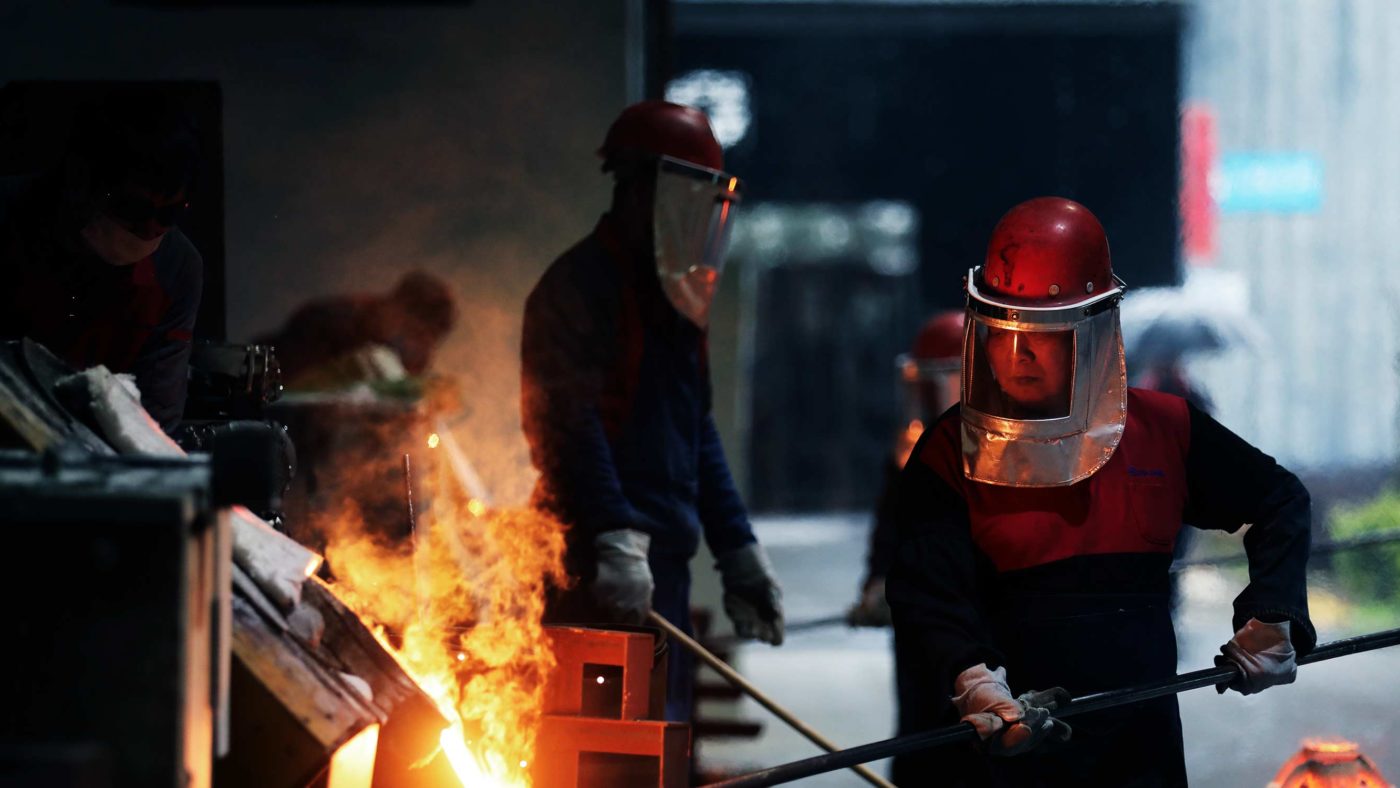The Prime Minister reportedly intends to impose steel import tariffs in order to protect UK steelmaking and support jobs in the North of England, as part of the ‘levelling up’ strategy. This would be a big mistake.
In 2018, Donald Trump imposed a 25% tariff on imported steel, as he had promised to do in his election campaign. It was part of his plan to bring steelmaking and manufacturing jobs back to America’s Mid-Western rust belt – once thriving industrial areas whose manufacturers had been undercut by foreign competitors offering goods like cars and washing machines at a much lower cost, and often of a higher quality.
Overall, though, it seems that Trump’s steel tariff probably lost the Midwest, and America, more jobs than it created. The decline in steelmaking jobs that he was complaining about reflected a glut in the world steel market, which boosting American steel production would only make worse. That is exactly what we have now: what Tata Steel, based in Hartlepool and Corby, calls a ‘flood of cheap steel imports’.
That might sound ominous for steel producers themselves but it turns out manufacturers rather like cheap steel. After Trump’s tariffs were imposed, America’s manufacturers, denied the ability to import cheaper foreign steel with which to make all those cars and washing machines, found their costs rising. All they could do was pass those extra costs on to customers, who simply bought more foreign cars and washing machines. So while American steelmakers might have had a short-term benefit from the tariff, their customers’ businesses took a hit — and in the long term, so did they.
Gluts and shortages in steel are not uncommon. It is a highly cyclical business. When economies are on the way up, the demand for steel soars. When they are falling or faltering (as they seem to be in the current inflationary situation brought on by Covid), demand plummets. Steelmakers have to have the resources and the flexibility to ride out these huge cycles.
In this regard, the UK government’s Net Zero policy does not do UK steelmaking any favours. Steel is a very energy-intensive business and our policies make energy expensive. Instead of liberating fracking and moving quickly on new nuclear capacity – such as the new generation of small-scale, quick and easy-to-build modular generators – the Government’s policy is to do next to nothing. No wonder Tata is complaining.
Bear in mind too that it took a large bureaucracy to police the Trump tariffs, which is not great news for our government if we are anxious to reduce the civil service headcount. In the US, appeals and court cases only increased the bureaucratic burden yet again. Remember too that steel is not a homogeneous product: many American manufacturers were reliant on specialist steels that could not be made at home, just as many UK manufacturers are. But specialist steels got caught up in the tariffs, forcing the authorities to negotiate a complicated system of exemptions and special cases, creating yet more legal and bureaucratic headaches.
UK tariffs will hit the same problems. Like the Trump tariffs, they may also run into trouble with the World Trade Organisation, which is trying to keep tariffs down so that every country can compete fairly in world markets. The EU is likely to challenge the move too. And steelmaking countries that are hit by the tariffs might respond with their own tariff hikes on UK exports, like whisky, or services like insurance.
Perhaps the worst thing, though, is the signal this sends out to the world. One of the ideas behind Brexit was that we could extricate ourselves from the vast superstructure of EU tariffs – protectionist measures, for the most part, designed to keep out cheaper goods from abroad. The UK, we were told, would get back to its historic role as a leader in world trade and a promoter of free trade policies across the globe.
Yet here we are raising our own protectionist barriers against other countries who can make steel better and cheaper that we can. Even more remarkably, this protectionism comes from a nominally Conservative government. It is an unprincipled move and, sadly, one that will kill jobs and economic recovery.
Click here to subscribe to our daily briefing – the best pieces from CapX and across the web.
CapX depends on the generosity of its readers. If you value what we do, please consider making a donation.


